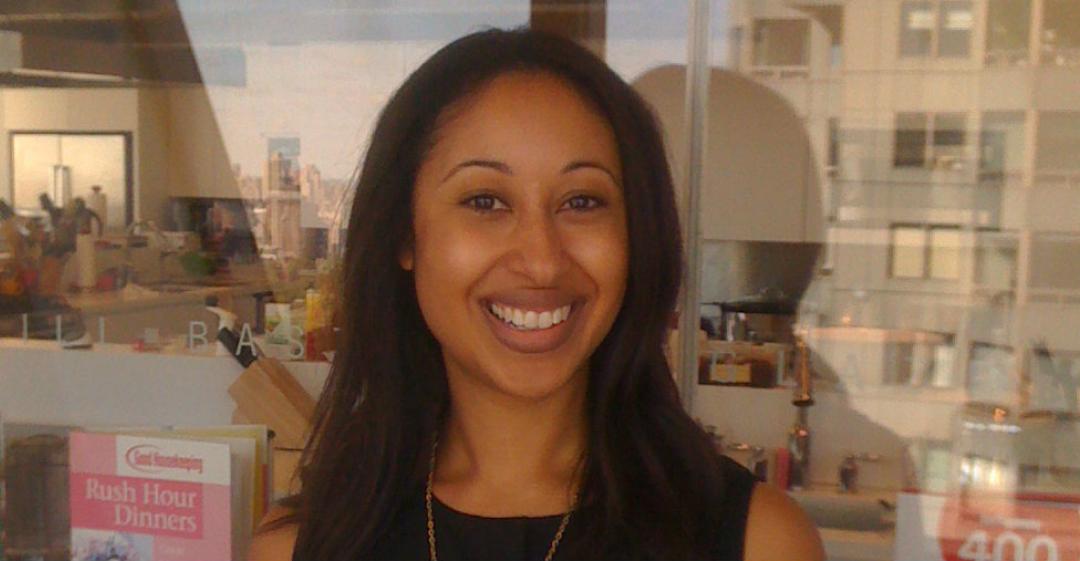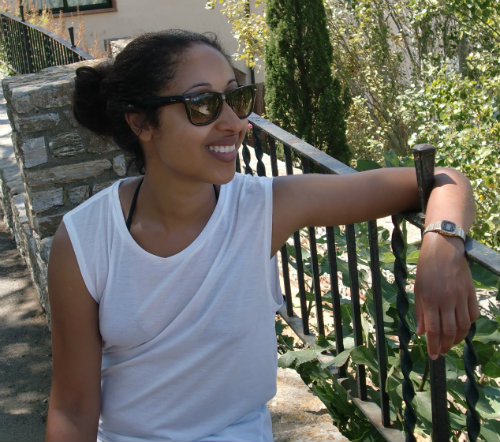“Over the years I fell more and more out of love with my work.”

What work were you doing previously?
I was International Advertising Manager for an international magazine publishing company.
What are you doing now?
I work for a small company that has created an online literacy intervention to help struggling readers.
I train school teachers in how to use the computer programme and run sessions.
I also offer private tutoring in touch-typing and English as a Foreign Language.
Why did you change?
Over the years I fell more and more out of love with my work.
When I started the job, ten years ago, I loved the fact that I worked for an international company; I used my language skills, and at the time I loved magazines. As time passed I realised that advertising and the world of magazines wasn't for me.
When was the moment you decided to make the change?
I'd considered a change for a long, long time, but had no idea what to move into.
I knew that I didn't want to continue in advertising sales, but other than that I was quite lost. Eventually it reached a point where the frustration and stress of feeling stuck had built up so much that I was miserable. I went through a period of crying every day.
Then, I realised there was one obvious option, which I had previously ignored – to simply leave my job.
Are you happy with the change?
I'm really happy with the change.
I feel as though I've finally become the kind of person who can be brave, make big decisions, and make things happen!
What do you miss and what don't you miss?
The one thing I miss is using languages every day, but I try to get around this by going to language meetups and making friends with native speakers.
I don't miss feeling inauthentic and trapped in an office I really didn't want to be in, spending my time working on projects I really didn't care about.
I'm still friends with ex-workmates so I don't need to miss them!
How did you go about making the shift?
This was a really long process, taking place over several years.
I started by reading books and blogs about career change, different ways of working, following your passion, confidence building and anything inspiring that I could get my hands on.
I particularly loved the Careershifters weekly email and Tim Ferriss' Four Hour Work Week. A friend recommended the book What Colour Is Your Parachute?, and I completed the exercises which helped me to focus on all sorts of different factors, such as the kind of environment I wanted to work in and the kind of people I wanted to work with.
I attended career change workshops, talks, and career fairs; I saw a life coach for a short period; and I contacted people whose work sounded interesting to ask them about it. I even took a half day of holiday and work shadowed a friend of a friend who worked in international rights publishing. I started volunteering for a charity focused on helping children with creative writing, as a way of testing an area which I thought could be interesting.
When I started to seriously consider leaving my job with no new role to go to, I took inspiration from a blog post on Live Your Legend and signed up to work for a translation agency as a freelancer. I started tutoring in touch-typing and English as a Foreign Language in my spare time. Knowing I could find work on the side helped to ease the fear of no longer having a steady income.
After I left my job, I explored various different avenues. I gained a CELTA qualification (teaching English as a Foreign Language) and I did some life coaching courses. I continued with the private tutoring and freelance translating. I temped for a while, in admin and as a teaching assistant. I also spent a month living in Cuba and learning Spanish.
Although it was scary at times when I didn't have any work on the horizon, it was exhilarating having the freedom to explore and try things out. Earning a small income from odd jobs helped to ease the anxiety of not having a fixed income. I was extremely frugal!
Finally, six months after leaving my job, I saw my current role advertised on Escape the City and went for it. After so many years of trying to identify what I wanted to do next, I was amazed to find a role that ticked so many boxes.
What didn't go well? What 'wrong turns' did you take?
I don't think anything went wrong.
In retrospect, I could have spent longer exploring Cuba (I was too scared about my finances to stay longer than a month), but there were no major mishaps.
How did you handle your finances to make your change possible?
Around a year before I made the break I became quite obsessed with minimalism – decluttering and spending frugally.
Looking back, I think this was possibly subconscious preparation for a big change. I sold lots of unwanted items on Ebay, gave stuff away, started saving like mad, and cut back on unnecessary spending. Tutoring in my free time helped, and I used Airbnb to earn extra cash.
What was the most difficult thing about changing?
Making the decision to leave my job with no new job to go to.
I'd always believed that you had to move from one job straight to another. I discussed the idea with my parents after a particularly trying couple of weeks and as soon as I said it out loud it was clear to me that it was the right decision.
The relief was instant.
What help did you get? 
I had massive moral support from my parents and sister, other family members and friends.
Seeing a life coach really helped in terms of motivation and taking action. And reaching out to friends of friends for advice, ideas and to hear about their own career changes was extremely useful.
I found books and blogs so helpful. It was great to know that other people had experienced similar emotions and had succeeded in moving on, and to read about ways of working and lifestyles I hadn't previously considered.
What resources would you recommend to others?
Tim Ferriss' book The Four Hour Work Week. I still refer to it now, and I love the Tim Ferriss podcast for inspiration, too.
Careershifters, obviously, Escape the City, and blogs such as Becoming Minimalist, Zen Habits, and Live Your Legend.
Books such as Feel The Fear And Do It Anyway by Susan Jeffers, This Year Will Be Different by Monika Kanokova, Working Identity by Herminia Ibarra and anything by Dale Carnegie.
What have you learnt in the process?
I've learned that I really can't afford to waste any more time in situations where I'm not happy.
I'm fully capable of making a decision and going for it, and making a success of it. And there's a lot of help and support out there, from people, free events, talks, books and blogs.
What do you wish you'd done differently?
I wish I'd made the break earlier.
What would you advise others to do in the same situation?
Be brave.
Making a jump and choosing not to take the safe, easy option is scary, but it's also really exciting.
Read as much as possible for inspiration and ideas, and talk to people – not just friends and family but also friends of friends and acquaintances. This is invaluable for support, motivation and ideas.
Write everything down in a dedicated notebook: ideas, contacts, calculations, everything. Then, really, it comes down to taking action, step by step. Find a way to try new things out, be it evening classes or experiments in your spare time.
What lessons could you take from Joanna's story to use in your own career change? Let us know in the comments below.



